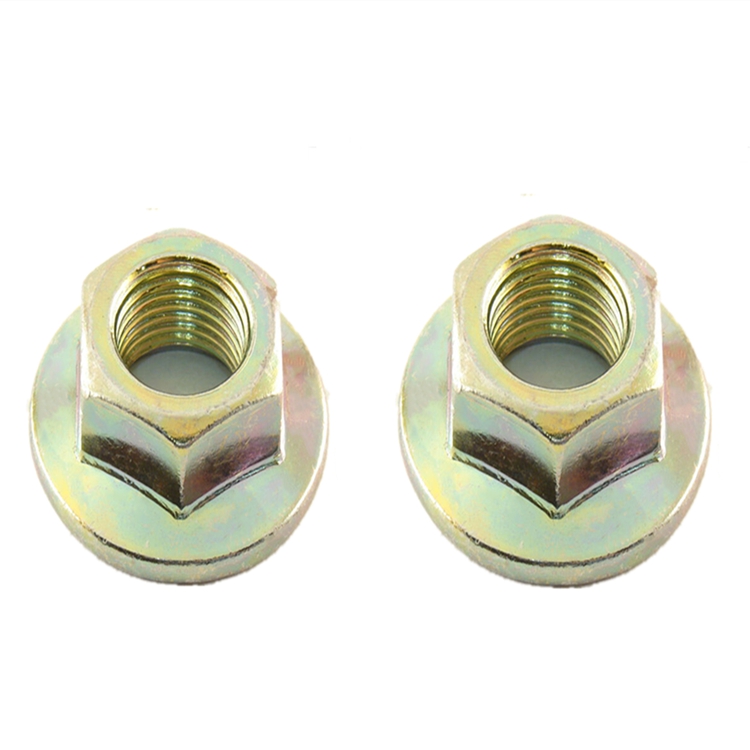Top Manufacturers of Stud Bolts for Enhanced Industrial Solutions and Reliability in Construction
Aug . 12, 2024 15:22 Back to list
Top Manufacturers of Stud Bolts for Enhanced Industrial Solutions and Reliability in Construction
Stud Bolt Manufacturers An Overview of the Industry
Stud bolts are an essential component in various industries, playing a crucial role in fastening two or more items securely. These long, threaded fasteners are used extensively in sectors such as construction, oil and gas, automotive, and manufacturing. The global demand for stud bolts has led to the growth of a robust industry comprising numerous manufacturers catering to diverse needs.
Stud bolts are typically made from a variety of materials, including carbon steel, stainless steel, and alloy steel, depending on the application requirements. The manufacturing process involves several stages, including forging, machining, and surface treatment. High-quality stud bolt manufacturers leverage advanced technologies and stringent quality control measures to ensure that their products meet international standards. This commitment to excellence is vital as stud bolts often endure harsh conditions, including high temperatures, corrosive environments, and heavy loads.
Stud Bolt Manufacturers An Overview of the Industry
In recent years, the increasing focus on sustainability has prompted many stud bolt manufacturers to adopt eco-friendly practices. This includes the use of recycled materials, energy-efficient processes, and sustainable packaging solutions. By minimizing their environmental footprint, manufacturers not only contribute to the preservation of natural resources but also appeal to a growing market of environmentally conscious customers.
stud bolt manufacturers companies

The landscape of stud bolt manufacturing is competitive, with numerous companies operating globally. Manufacturers differentiate themselves through various strategies, including product innovation, customization, and exceptional customer service. Some companies invest heavily in research and development to create innovative fastening solutions that enhance performance and reliability. Customization is another area where manufacturers excel; they often collaborate with clients to produce tailor-made solutions that meet specific requirements, thereby establishing strong partnerships.
Global supply chains play a critical role in the stud bolt manufacturing sector. Manufacturers often source raw materials from various suppliers to ensure the availability of high-quality inputs at competitive prices. Additionally, logistics and distribution networks are essential for timely delivery to customers, especially for industries where downtime can result in significant financial losses. Many manufacturers have adopted advanced inventory management systems to streamline operations and address the challenges of delivering products in a timely manner.
The digital transformation of the manufacturing industry has also impacted stud bolt manufacturers. Many companies have embraced technologies such as automation, robotics, and the Internet of Things (IoT) to enhance production efficiency and accuracy. These technologies not only reduce operational costs but also improve quality, as automated systems can minimize human error and ensure consistency in manufacturing processes.
In conclusion, the stud bolt manufacturing industry is a vital sector that supports numerous markets by providing essential fastening solutions. With a focus on quality, innovation, and sustainability, manufacturers are well-positioned to meet the demands of an evolving global market. As industries grow and technology advances, the role of stud bolt manufacturers will remain critical in ensuring the integrity and reliability of structures and machinery worldwide.
Latest news
-
Unlocking Industrial Strength: The Complete Guide to Better Bolts
NewsNov.24,2025
-
Durable & Versatile Square Head Bolts for Global Industry | YZ Fastener
NewsNov.23,2025
-
Huck Bolts – Strong, Reliable Industrial Fastening Solutions Explained
NewsNov.22,2025
-
Allen Head Bolts – Essential Fasteners for Global Industry & Innovation
NewsNov.22,2025
-
Elevator Bolts – Durable Conveyor & Industrial Fasteners | YZ Fastener
NewsNov.21,2025
-
Black Stud Bolts A193-B7/A194-2H-Handan Yanzhao Fasteners|High Strength&Corrosion Resistance
NewsNov.21,2025
